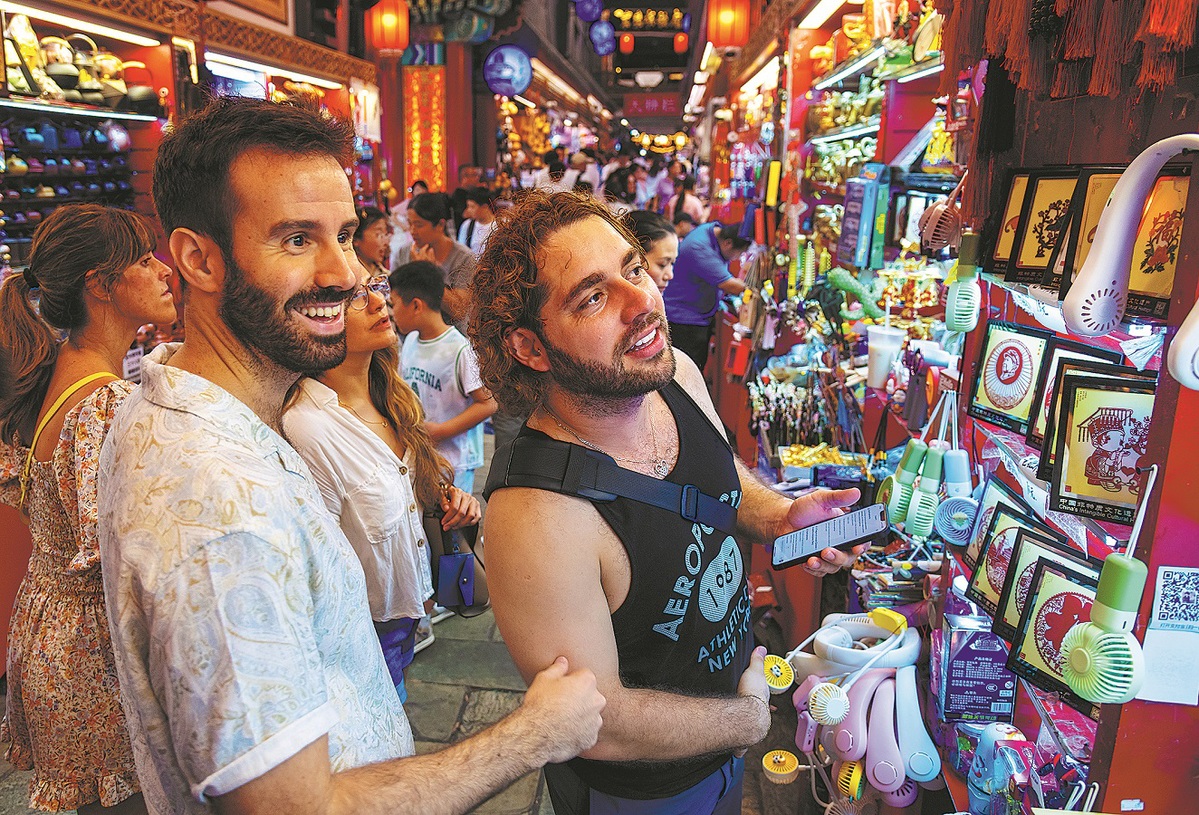Nighttime economy savoring more success


Nightly sales of foods and beverages are booming across China this summer and spicing up the nation's nighttime economy, as extended retail business hours and more convenient delivery services attract more late-night consumers.
In Beijing, several new after-dark markets have mushroomed this season and more vendors are setting up shop to rake in the benefits.
Huda Restaurant, a popular crayfish eatery on the capital's Guijie Street, is operating four outlets in the same area. During the peak period on some nights, customers generally have to wait in line for three hours, according to the restaurant.
"Tourists are often unable to wait that long to dine in. Some choose the takeaway option, or order deliveries to their hotels. We have seen a rapid growth of orders — and revenues — on food delivery platforms," said Zhang Shengtao, deputy general manager of Huda.
Kuafood, a domestic chain that offers a variety of meat and vegetable skewers and boasts more than 2,300 stores nationwide, said that 50 percent of its stores have extended their operating hours from 9 pm to midnight this summer.
"The traditional Chinese dinnertime and the late-night snacking period have been our peak sales hours. Stores with extended operating hours are expected to record 10 to 30 percent increase in revenues. Community stores located in first-tier cities usually witness higher nighttime sales, which is mainly contributed by food deliveries," said Zhang Rongrong, director of delivery business at Kuafood.
Momojia Rougamo, a restaurant chain founded in Shanghai, which offers specialty cuisines from Northwest China, said it has extended its business hours since March, and nighttime orders have been accounting for about 15 percent of the total each day.
According to a report released by the Ministry of Commerce, 60 percent of China's urban consumption takes place after dusk. At large-scale malls, sales between 6 pm and 10 pm usually account for over half of the whole day's revenue.
Hong Yong, an associate researcher at the Chinese Academy of International Trade and Economic Cooperation, said that late dining meets the needs of young people in a better way, especially with more of them working overtime or having late-night social engagements.
"Urban residents usually spend the morning and afternoon working or studying, while the night is reserved for unwinding. With the days being longer in summer, people are more willing to venture out for leisure activities, making night markets and night tours widely popular and stimulating the vitality of nighttime consumption," he said.
Hong added that multiple online delivery platforms, such as Taobao Instant Commerce service and Meituan, have been innovating and reinventing their business models to gain an edge, and this competition is giving consumers more options.
China has prioritized consumption as the nation's top economic initiative this year, and policymakers have introduced various measures to strengthen consumption growth.
With the market size of China's nighttime economy surpassing 50 trillion yuan ($7 trillion), according to marketing consultancy Zhiyanzhan, it is continuing to inject fresh momentum into the nation's economic growth, Hong said.




































